India — towards a “Hindu Rashtra” or a truly Secular Republic?
Did India slide away from an initially “secular” state as the minority Muslim community was progressively given preferential treatment in the decades after Independence? Till 2014, that is.

Preamble didn’t initially contain the “Secular”
The Constitution of India that was adopted by the Constituent Assembly on 26th November, 1949 and came into force on 26th January, 1950. The word “secular” did not find any mention in the initial version of the Preamble. The words “Secular” and “Socialist” were inserted in the Preamble by the 42nd Constitutional Amendment w.e.f. 03.01.1977, making India a “Sovereign Socialist Secular Democratic Republic”. Does it mean that the Constitution of India, when it came into force on 26th January, 1950, envisage a non-secular Republic; or, to put it more bluntly, a Hindu Rashtra — since nearly 80% of its population at Independence (as even today) comprised the Hindus. The answer is emphatically in the negative1.
Meaning of the term “Secular”
The Cambridge Dictionary defines the word (adj.) “secular” as “not having any connection with religion”. A more serious reader, who wants to learn why the Founding Fathers of our Constitution did not vote to use the word “secular” in the Preamble or elsewhere, is referred to the debates of the Constituent Assembly. However, for the moment, suffice it say that the word “secular”, in the context of the Indian Constitution and Polity, attains a slightly more nuanced meaning.
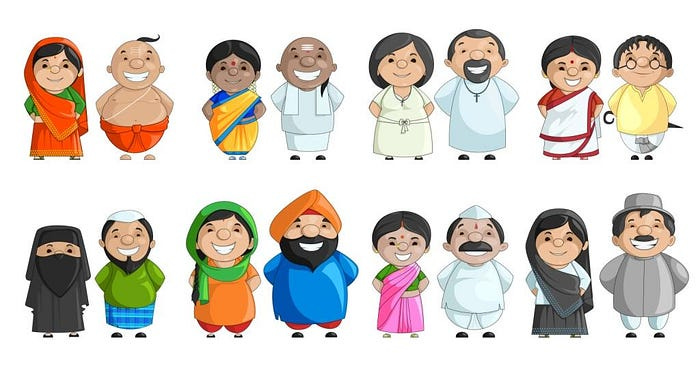
It does not, most certainly, imply that the Indian State or its Constitution has nothing to do with religion; it means, first and foremost, that there is no “State Religion”, or even a favoured religion” in India, unlike for instance in the “Islamic Republic of Pakistan”. Secondly, it implies that the State shall not discriminate between its citizens on the basis of religion alone (For example, Articles 14, 15 and 16). Thirdly, “all persons are equally entitled to freedom of conscience and the right freely to profess, practise and propagate religion.” (Article 25(1)).
The reader is also referred to my Article captioned Sovereign Socialist “Secular” Democratic Republic India, originally published on October 21, 2018, where I elucidate as to what “secular” means within the constitutional framework of India2. In that article, I essentially argue that the “secular” credentials are more to do with management of places of worship, especially in the context of “untouchability” and running of educational institutions by the minority communities, including the question of state aid to them and imparting of religious instructions in such state-aided institutions.
Slide from a “secular” to “quasi-secular” India?
In this piece, however, I argue that the Republic of India that took birth on 26th January, 1950, when the Constitution came into force, had overwhelming “secular” credentials but over decades more and more concessions were perceived as being granted, by accident or by design, to the Muslim community under the label of affirmative action often with the stated objective of the welfare of the minorities. On the other hand, implementation of arguably “secular” policies like the “Uniform Civil Code (UCC)” was postponed indefinitely, although it is a prominent provision of the Directive Principles of the State Policy (Article 44). Moreover, because of political compulsions, special provisions were created in the law as well as in policies and schemes for the Muslim community, which effectively rendered the Indian State as “quasi-secular”, if not “non-secular”, since a special class of citizens, namely the Muslims, was de facto created. This was a gradual and a creeping process but the incremental effect of the same over decades till 2014 rendered the Indian Constitution “quasi-secular”, although the word “secular” continued to adorn the Preamble of the Constitution.
This trend to appease the Muslim minority from 1950 till 2014 has been effectively and coherently, first stalled and thereafter reversed by the Narendra Modi Government, which is attempting the restoration of a truly secular Constitution, rather than strategizing to establish a Hindu Rashtra, as some critics profess. As stated before, the Constitution of India, that became effective from 26th January, 1950, declared, in all but words, the country as a “secular” Republic, which means that the state does not endorse or promote any particular religion. However, the practice of secularism in India has been a subject of debate and criticism for decades. Despite the constitutional provisions, the Indian state has been accused of favoring certain religious groups, especially the Muslim community, through various policies, laws, and judicial decisions. This has led to a perception among some sections of the society that India’s secularism is more of a tokenism rather than a genuine commitment to the principle of religious neutrality.
Year 2014 — point of inflexion
However, since 2014, especially in the in recent years, the Narendra Modi-led government has taken several steps to restore the essence of secularism in India, which includes reducing the perceived favoritism towards the Muslim community. While his critics have accused the government of pursuing a Hindu nationalist agenda of establishing a Hindu Rashtra, the government has repeatedly reiterated its commitment to the constitutional principle of secularism and stressed that its policies are aimed at creating a level-playing field for all religions and communities. This significant shift in the government’s approach towards secularism has led to a renewed debate on the meaning and practice of secularism in India.
Uniform Civil Code (UCC)
The issue of the Uniform Civil Code (UCC) has been a contentious one in India, with the Constitution prescribing, if not mandating, that it is the duty of the state to secure a UCC for all citizens. Although not justiciable or enforceable, Article 44, a part of the Directive Principles of the State Policy, is a clear signal to those at the helm that a UCC must eventually be made applicable in the country so far. The UCC envisages a common set of laws that govern personal matters such as marriage, divorce, adoption, and inheritance, which would apply to all citizens irrespective of their religion. However, in practice, India has been unable to implement the UCC due to opposition from various religious groups, especially the Muslim community.
Muslims in India are governed by the British-era Muslim Personal Law (Shariat) Application Act, 1937, which is based on Islamic Sharia and applies to matters such as marriage, divorce, adoption and inheritance. This means that unlike in western democracies, where all citizens are governed by a common personal law, Muslims in India have a separate set of laws that apply to them. This has been a subject of debate, with some arguing that the Muslim Personal Law discriminates against Muslim women, while others claim that it is necessary to protect the cultural and religious identity of the Muslim community.
Despite the constitutional guideline, if not a mandate, to implement a UCC, successive governments in India have been unable to do so, owing to opposition from various religious groups. While the Modi government may also have been unable to implement a UCC so far, in spite of its avowed agenda of pursuing truly secular policies, it has definitely triggered a fresh debate on this deeply contested issue in the public space. The government has been accused, by the right-wing hardliners, of being reluctant to take on the Muslim community on the issue of the UCC, fearing a backlash from a significant section of the community, but it cannot be denied the Modi government has brought back the issue the UCC sharply back in focus and public discourse. Progress in this regard could be sudden and expeditious3.
The Shah Bano Case
The Shah Bano case is a prime example of the failure of India’s secularism to effectively implement a UCC, when the time was ripe. Shah Bano, a 62-year-old Muslim woman, had sought maintenance from her husband, who had divorced her through the practice of triple talaq. The Supreme Court of India, in a progressive judgment in 1985, ruled that Shah Bano was entitled to maintenance from her husband under Section 125 of the Code of Criminal Procedure, which applies to all citizens irrespective of their religion.
However, the judgment was met with strong opposition from Muslim leaders, who argued that it interfered with the Muslim Personal Law and that the UCC was against Islamic principles. The Muslim leaders demanded that the government overturn the Supreme Court’s verdict and protect the Muslim Personal Law. The then Prime Minister, Rajiv Gandhi, bowed down to the pressure from the Muslim leaders and passed the Muslim Women (Protection of Rights on Divorce) Act, 1986, which nullified the Supreme Court’s judgment in the Shah Bano case.
The passage of the Muslim Women (Protection of Rights on Divorce) Act, 1986, was widely criticized for being a regressive move that further entrenched the discrimination against Muslim women. It was seen as a clear example of how the Indian government, in the name of protecting religious identity, had failed to uphold the constitutional principle of gender equality. The Shah Bano case, therefore, stands as a stark reminder of how the successive Indian governments have failed to implement a UCC and has often succumbed to pressure from religious groups, thereby perpetuating discrimination against vulnerable sections of society.
“Triple Talaq Case”
The Supreme Court’s verdict in the “Triple Talaq” case was a landmark moment for secularism in India. In 2017, the Supreme Court, in a 3–2 judgment, declared the practice of instant triple talaq (talaq-e-biddat) among Muslims as unconstitutional, violative of the fundamental rights of Muslim women, and against the principles of gender justice and equality. The verdict was widely hailed as a significant step towards gender equality and the implementation of a UCC in India. Modi Government’s stand before the Apex Court had been categorically and unambiguously against this questionable medieval practice/ custom, which had been dispensed with even in most Islamic Nations.
The Modi government, in line with its commitment to secularism and gender equality, took a bold consequential step to enact a law that effectively criminalized the practice of triple talaq. The Muslim Women (Protection of Rights on Marriage) Act, 2019, makes the practice of triple talaq a cognizable offense punishable with imprisonment for up to three years. The law aims to empower Muslim women and protect their rights by criminalizing a discriminatory practice that was prevalent among some sections of the Muslim community.
The enactment of the law was a significant step towards implementing a UCC in India, as it sought to eliminate discriminatory practices and establish a common set of laws that apply to all citizens irrespective of their religion. The Modi government’s proactive approach towards implementing a UCC, beyond mere statements of intent or rhetoric, has been widely appreciated as a significant step towards creating a more equitable society.
Overall, the Supreme Court’s verdict in the “Triple Talaq” case, followed by the enactment of the Muslim Women (Protection of Rights on Marriage) Act, 2019, are seen as critical moments in India’s secular history, representing a significant step towards the implementation of a UCC and the protection of the rights of all citizens, especially vulnerable sections of society.
Abrogation of Article 370
Article 370 was a provision in the Indian Constitution that granted special status to the state of Jammu and Kashmir. The article allowed the state to have its own constitution, flag, and autonomy over the internal administration, while the Indian government retained control over the areas of defence, foreign affairs, and communications. The provision was introduced in 1949 as a temporary provision, and it was intended to be removed after the state’s constituent assembly finalized the state’s constitution. However, the article continued to exist, and it became a contentious issue between the Indian government and the State of Jammu and Kashmir.

The abrogation of Article 370 by the Modi government in 2019 was a significant step towards establishing a truly secular Republic of India. The move was hailed by many as a bold and decisive step towards integrating the State of Jammu and Kashmir with the rest of India and creating a more equitable and unified country. The abrogation of Article 370 removed the special status of Jammu and Kashmir and made it a part of the Indian Union like any other state.
The abrogation of Article 370 was a contentious issue, and it faced criticism from some quarters for being a unilateral move by the Indian government that ignored the wishes of the people of Jammu and Kashmir. However, the Modi government argued that the move was necessary to integrate the state with the rest of India, and to ensure that the people of Jammu and Kashmir enjoy the same rights and privileges as other citizens of India. The government’s decision was supported by many Indians who saw it as a critical step towards establishing a more equitable and secular society.
Overall, the abrogation of Article 370 was a significant step towards establishing a truly secular Republic of India. The move removed a provision that had been used to create divisions between the people of Jammu and Kashmir and the rest of India, and it sought to create a more unified and equitable country. The Modi government’s decision to abrogate Article 370 was a bold and decisive move that demonstrated its commitment to creating a more inclusive and secular India.
What is the debate and controversy surrounding the Citizen’s Amendment Act. Use this to illustrate Modi-Government’s firm resolve to an anomalies that may have arisen in a historical context and take effective steps towards a truly secular Republic, rather than one that tilts in favour of its Muslim Citizens.
The Citizenship Amendment Act (CAA) is a contentious piece of legislation passed by the Indian Parliament in 2019. The law provides a fast-track pathway to citizenship for persecuted minorities from Afghanistan, Bangladesh, and Pakistan who came to India before 2015. The law, however, excludes Muslims from this pathway to citizenship, which has led to widespread criticism and allegations of discrimination against the Muslim community. It, however, does not otherwise bar foreign nationals, who are Muslims, to get Indian citizenship under the normal laws/ policies.
Critics of the CAA argue that it is discriminatory and violates the secular principles of the Indian Constitution, which provides for equal treatment of all citizens irrespective of their religion. They argue that the law is designed to exclude Muslims, who are the largest minority in India, from the citizenship process and is part of a broader agenda to marginalize the Muslim community.
Proponents of the CAA argue that the law is necessary to provide refuge to persecuted minorities who have fled their home countries due to religious persecution. They argue that the law is in line with India’s long-standing policy of providing a safe haven to persecuted minorities from neighboring countries.
The Modi government has been firm in its resolve to address the anomalies that may have arisen in a historical context and take effective steps towards a truly secular Republic. While the CAA has been criticized as being discriminatory, the government has defended the law and argued that it is necessary to provide refuge to persecuted minorities. The government has also taken steps to address the concerns of the Muslim community and has sought to allay fears that the law is part of a broader agenda to marginalize Muslims.
Overall, the CAA remains a contentious issue in India, with supporters and opponents of the law fiercely divided. The Modi government’s firm resolve to address the issue and take effective steps towards a truly secular Republic has been lauded by some and criticized by others, but the government’s commitment to the issue remains unwavering4. Till the Supreme Court of India comes out with its verdict regarding the constitutional validity of the abrogation of Article 370 , this is all that we can say, at this stage.
Central Waqf Laws
The Central Waqf Act is a legislation that regulates the administration and management of waqf properties in India. Waqf is an Islamic religious endowment that is dedicated to a charitable cause, and the property is held in perpetuity for the benefit of the cause. The old Central Waqf Act, which was enacted in 1954, was criticized for being outdated and ineffective in protecting waqf properties from encroachment and mismanagement. The Supreme Court also ruled that “once a waqf property, always a waqf property” and this caused significant impediments not only in land acquisition for public purposes but also for the “non-Muslim stranger” to assert their right, title or interest in any property that had been declared to be a waqf property under a summary procedure under the Central Waqf Act.
In 1995, the PV Narsimha Rao government passed a new Central Waqf Act, which aimed to address these shortcomings and provide better protection for waqf properties. The new law introduced stricter penalties for encroachment and unauthorized use of waqf properties, and established a framework for the efficient management and utilization of waqf properties.
However, some have criticized the new law for favoring the Muslim community and their institutions in the settlement of disputes over waqf properties, while discriminating against non-Muslim claimants. This has led to allegations of bias and calls for measures to restore parity and ensure equal treatment of all citizens irrespective of their religion.
To address these concerns, the Modi government is actively considering to undertake measures such as appointing independent bodies to oversee the management and administration of waqf properties, ensuring transparency in the allocation and utilization of waqf properties, and providing legal recourse to all parties in disputes over waqf properties. Such a measure, shall go a long way in re-calibrating India as an authentic “secular” Republic.
Aligarh Muslim University
The Aligarh Muslim University (AMU) is a Central University that was established in 1920 during the colonial era with the aim of promoting higher education among the Muslim community in India. The University has a unique minority character, with the AMU Act of 1920 granting it the right to reserve up to 50% of its seats for Muslim students.
However, this provision has been a subject of controversy, with some arguing that it creates discrimination against non-Muslim citizens of India who are not eligible for reservation in admission to the University. Critics have also pointed out that the University receives significant funding from the government, and therefore, the reservation policy is inconsistent with the secular principles of the Indian Constitution.
The Modi government has taken a firm stance on the issue, with the Attorney General of India stating in 2016 that the AMU was not a minority institution and therefore, could not have a reservation policy based on religion. However, the matter is still pending before the Supreme Court, with some arguing that the University’s minority character is protected by the Constitution’s Article 30. It may also be noted that while St. Stephan’s College, a constituent college of Delhi University, has significant funding of the central Government and 50% of the seats of this prestigious institution are reserved for Christian students. On the other hand, there’s no such centrally-funded institution, where the Sikh students have 50% reservation.
To remove the perception of discrimination, the Modi government is considering to take steps such as establishing a committee to review the reservation policy of the university, exploring alternative methods to promote higher education among the Muslim community without resorting to religious-based reservation, and promoting diversity and inclusion in all universities across the country.
Additionally, the government can also consider taking steps to improve the quality of education and infrastructure in minority-dominated areas, which would help to address the socio-economic inequalities faced by these communities and promote equal access to education for all citizens. Although pertaining to just one University, any move to rationalize reservation for a particular minority community, will strong a strong signal in the public-polity space that the Modi government is strongly adhering to its core principles of restoring true secular principles in the domain if higher education.
The Haj Subsidy
The Haj subsidy was a policy instrument that was introduced by the Indian government in 1959 with the aim of providing financial assistance to Muslims in India who wished to undertake the Haj pilgrimage to Mecca. The subsidy covered a portion of the travel expenses of the pilgrims, and it was seen as a way to promote religious pilgrimage and to provide support to the Muslim community.
However, over the years, the Haj subsidy was seen by many as a form of discrimination against non-Muslim Indian citizens. Critics argued that the subsidy was not consistent with the principles of a secular state, as it provided financial assistance based on religion. Moreover, the subsidy was seen as benefiting only a small segment of the Muslim community, as only a small proportion of Indian Muslims actually undertake the Haj pilgrimage.
In 2012, the Supreme Court of India directed the government to gradually reduce and eventually phase out the Haj subsidy. The court’s judgement was seen as a step towards promoting a more secular and inclusive society, and it was welcomed by many civil society groups.
In 2018, the Modi government announced that it would completely eliminate the Haj subsidy and use the savings to fund the education of minority communities, including Muslims. This decision was seen as an attempt to rectify a historical distortion and to promote a more inclusive society that provides equal opportunities to all citizens, irrespective of their religion.
In summary, the Haj subsidy was seen as a policy instrument that was inconsistent with the principles of a secular state, and the Supreme Court’s judgement and the Modi government’s subsequent policy decisions to eliminate the subsidy are seen as attempts to promote a more inclusive and equitable society.
Ram Janambhoomi-Babri Masjid Dispute
The Ram Janambhoomi-Babri Masjid dispute was a long-standing religious and political conflict in India that began in the 19th century. It centers around a piece of land in Ayodhya, Uttar Pradesh, where the Babri Masjid, a mosque, was built by Mughal Emperor Babur in the 16th century. The mosque was located on a site believed by Hindus to be the birthplace of Lord Ram, a revered Hindu deity.
In 1949, Hindu activists allegedly placed idols of Lord Ram inside the mosque, which led to a dispute between Hindus and Muslims over the ownership of the site. The government at the time declared the site disputed and locked the mosque, preventing both Hindus and Muslims from worshiping there.
In 1992, Hindu activists demolished the Babri Masjid, sparking widespread communal violence across the country. The demolition of the mosque led to a protracted legal battle over the ownership of the site.
Central governments before Narendra Modi’s government tried to maintain status quo on the issue, fearing that any decision in favor of one community or the other would lead to further communal violence. Several attempts were made to resolve the dispute through negotiations and court-mediated settlements, but all of them failed.
In 2019, the Supreme Court of India delivered a landmark judgment in the Ram Janambhoomi-Babri Masjid dispute, ruling in favor of the Hindu claimants and allowing the construction of a Ram temple on the site. The court also ordered the government to give an alternative site to the Muslim community to build a mosque.
The Modi government welcomed the Supreme Court’s decision and announced the formation of a trust to oversee the construction of the Ram temple. The decision was widely hailed by the Hindu community, who saw it as a victory for their long-standing demand for the construction of a temple on the site.
The Ram Janambhoomi-Babri Masjid dispute is a complex issue that has deep historical, religious, and political implications. The decision of the Supreme Court and the firm stand of the Modi government in favor of the construction of a Ram temple is seen by many as a step towards conclusively resolving the long-standing dispute and promoting communal harmony in the country. It’s also seen as a categorical recognition of the rights, beliefs and sentiments of the Hindu community, many among which felt a sense of alienation that even decades after Independence, they could not get justice to build a temple at the birthplace of Lord Ram Chandra ji. This marks a very significant milestone in the restoration of the secular credentials of the Republic of India.
Summing Up — back to true “secularism” and not towards a “Hindu Rashtra”
The Modi-Government’s commitment to establishing a truly secular Republic of India is evidenced from its actions over the past few years. These measures are both coherent and purposeful. It has taken bold steps to rectify historical distortions, often at the risk of being perceived as anti-minority. The Shri Narendra Modi’s Government has acted firmly to rectify the anomalies that have arisen in the historical context, to establish parity among citizens irrespective of their religion.
From the abrogation of Article 370 to the enactment of laws criminalizing triple talaq , the Modi-Government has shown that it is not diffident to take difficult decisions. It has also demonstrated both its empathy and commitment towards protecting persecuted minorities from neighbouring countries, with the Citizenship Amendment Act, ignoring the cacophony of protests of some vocal elements in India, who ironically regarded special dispensation for a particular religious minority within India as a birthright, above and beyond the constitutional provisions of a secular Republic.
The Modi-Government’s approach has not been to establish a Hindu Rashtra, as some critics have alleged, but to uphold, and if necessary restore, the basic and cardinal principles of a truly secular Constitution. Its actions have shown that it is not willing to continue the policy of appeasement toward a particular religious community or vacillation or inaction as was the wont of the previous governments, but rather to take bold steps towards a truly secular India.
In conclusion, the Modi-Government’s actions have demonstrated its commitment to establishing, rather restoring, a truly secular Republic of India, with equal rights and opportunities for all citizens. While there may be differing opinions on its approach, it is clear that the Government is not shying away from taking difficult decisions in pursuit of its cherished goals. It is now up to all Indians to work together towards building a truly secular and inclusive society. This, not a Hindu Rashtra, is what the Founding Fathers of our constitution envisaged.
_______________________________________________
The author superannuated as Special Chief Secretary, Punjab on 31st July, 2021, after nearly 37 years of service in the IAS.
He can be reached on kbs.sidhu@gmail.com
Updated and edited, to add references to my later articles in footnotes.
Sovereign Socialist “Secular” Democratic Republic India
Thank God, India is not a “Secular” country, in the literal sense Preamble didn’t initially contain the “Secular” The Constitution of India that was adopted by the Constituent Assembly on 26th November, 1949 and came into force on 26th January, 1950. Neither t…
Balanced and Equitable Uniform Civil Code: Advancing Towards Equality, Secularism and Justice
Introduction: The recent clear and unambiguous views expressed by Prime Minister Narendra Modi regarding the Uniform Civil Code (UCC) in India has, very understandably, sparked a fresh debate. My article argues in favour of a “central” UCC, emphasizing the importance of upholding the Directive Principles of State Policy, promoting gender equality, elimi…
India's Citizenship Act: Lessons from Israel
In today's world, the intersection of immigration, citizenship, and religious identity has become a topic of intense scrutiny and debate. The Citizenship Amendment Act, 2019 (CAA) in India, with its seemingly exclusionary provisions and the ensuing controversy it sparked, provides a unique opportunity for us to examine the complexities surrounding these…




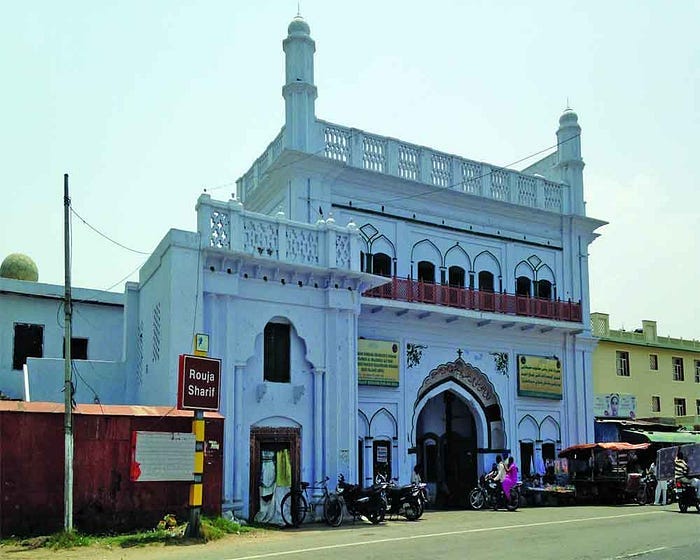
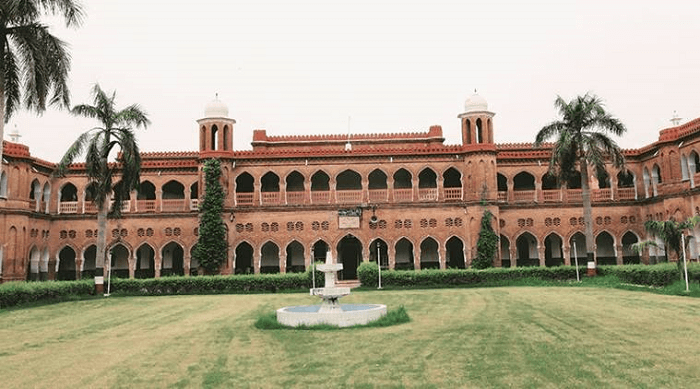


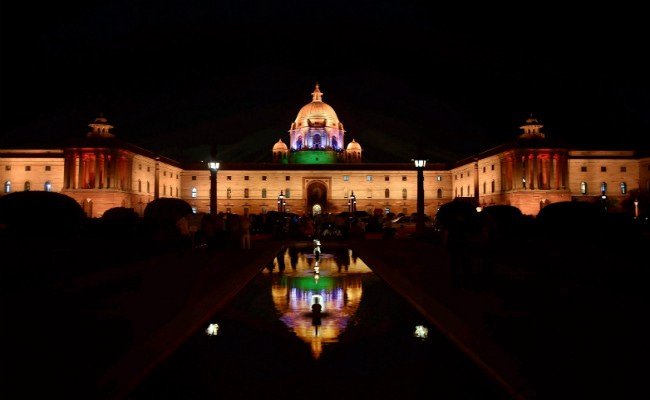
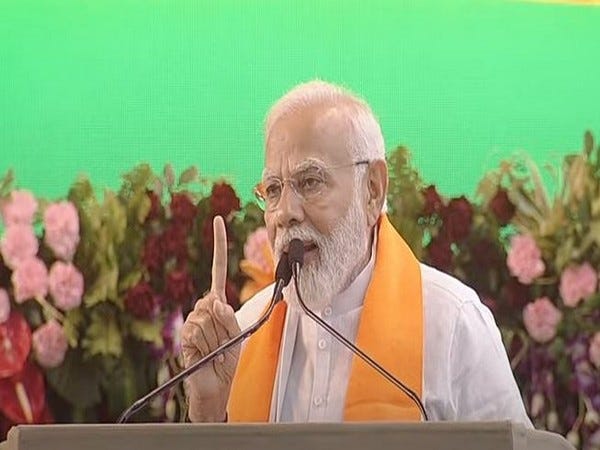

Sir..
Went through your very well articulated article. Can't disagree with you on any of the points. Policy of the Government before 2014 aimed at appeasement of Muslims for gathering votes and for greed of power has definitely diluted the basic foundation of Secularism. Though much has been done by the present Government but a lot is still required for accomplishment of the real Secularism and to attain the Goals towards building India as a super power Nation globally in all spheres of Development, against all kinds of challenges and concerted opposition from the tainted Parties for their own vested interests coloured with overtones of minority appeasement for power. Its too complicated a subject but I am sure the electorate of the Nation would understand the good work done so far by Modi led Government and give him more opportunities to serve this Nation and make it thoroughly Secular and to make it so strong that it can win over any kind of situation whenever so warranted!
A very well analysed and well thought out Article, Sir Ji!
Satsriakal !!🙏